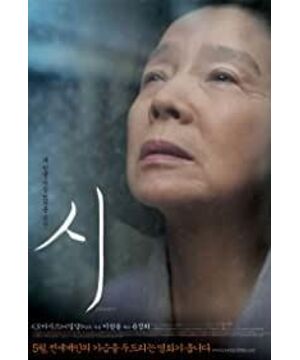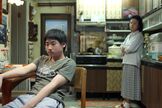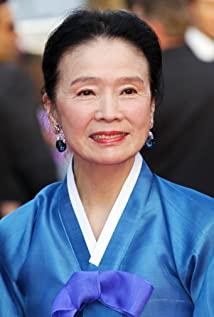Some things I remembered on my mobile phone when I turned to the first time I pulled the film "Poem":
Last scene:
Yang Meizi was writing a poem in front of the desk, the camera changed to fields and flowers... The camera came back home, her daughter came back, Yang Meizi was no longer at home, and then the voice of the grandmother appeared (the narration read the poem written by Yang Meizi), the whole mood It is very sad, calm and deeply healing. Like the girl, the old woman has completed her self-redemption. After that, the girl's voice (voiceover) appeared and said those poetic words. This is all poetic resistance. The girl appears on the camera, she is on the side of the road, her head is turned back, she sees a smile on her face, (then she throws herself into the river). The last shot of the film is the river, which is shot from above, with a fixed shot, and the water flows deeply and continuously (echoing the sound of water in the title).
The grandmother has a few narrations: "How lonely is that place?" "Can you receive the letter that didn't get stamped?" "It's time to say goodbye." There is a sad and thought-provoking pain in listening to these words. I can't help but think of the efforts the grandmother made for her grandson and herself before she left. Afterwards, the girl's narration appeared: "It's time to part", "Can we find light again when darkness comes." The girl was defiled, and she, who was in the flowering season, chose another comfortable path to free herself from the world.
The last scene expresses the girl and the grandmother's inner redemption and the pursuit of freedom, which rises to the theme of the whole film. Self-redemption is actually poetic rebellion against the mundane.
View more about Poetry reviews











